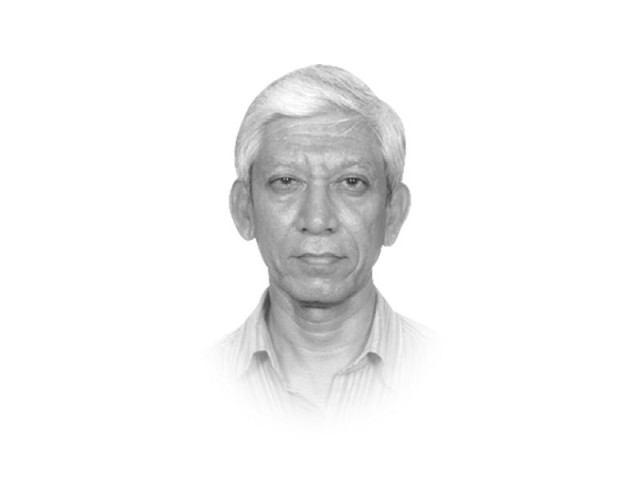The making of the modern maulvi — VIII
Thanvi was particularly angry that Muslim leaders had subordinated themselves to Gandhi’s decisions, instead of ulama.

Thanvi, however, had categorical reasons against participation in such movements against the colonial government. For one thing, he was of the view that since the ultimate aim was the revival of Muslim rule — in India and elsewhere — to which Hindus could never be expected to empathise, Muslims must keep away from all such khurafaat (nonsense). He was particularly angry that the Muslim leaders had subordinated themselves to Gandhi’s decisions. In his Malfoozat, Thanvi says, “There is nothing in this entire movement which is based on a suggestion from a Muslim leader or the ulama. See for yourself: ‘home rule’ — Gandhi’s idea, boycott — his idea, khaddar — his idea, the Khilafat issue — his idea, the lesson of Hijrat — his idea. All they [the Muslim leaders] take upon themselves is to follow whatever he says. They should have some ghairat at least!”
When Maulana Mahmood-ul Hasan Deobandi was allowed to return from his seven-year exile to Malta due to deteriorating health, Thanvi went to Deoband to see him. He mentions in his Malfoozat that a maulvi, who knew of Thanvi’s opposition to the idea of any resistance to colonial masters, reminded him that he was straying from the path of his jihadi elders. He apparently meant the jihad movement launched by Shah Ismail and Syed Ahmad (which was, incidentally, launched against the Sikh kingdom of Punjab). Thanvi retorted that he was aware of the fact that his buzurgs had “stood up” for jihad, but in the end they had “sat down” (meaning, abandoned it), and that he (Thanvi) was following their later stand which cancelled their earlier decision to launch jihad. He further comments that the underlying reasons for abandoning jihad in the earlier time were not only present in his own time but had become more severe. Thanvi does not say if he said the same thing to Maulana Mahmood-ul Hasan, who had clearly sided with political resistance.
Thanvi’s arguments against the launching of jihad in modern times are based on his interpretation of the concept. He divides it into two postulates: One, if the Muslims have the qudrat (strength), they are supposed to launch a qital (an action to kill and enslave non-Muslim opponents); and, Two, if the Muslims are suffering from ijz (lack of strength), they must observe sabr (patience). In his view, there was no option in between these two that could be supported by the sources of Islamic fiqh. He used his interpretation of jihad to oppose any form of popular resistance — public rallies, offering arrests, hunger strike (which Thanvi equated with suicide, which, unlike the Deobandi maulvis of the AfPak today, he considered as absolutely forbidden — haram — according to Islam). All these ‘invented’ forms of mass political action were, according to him, borrowings from “other nations”.
The concept of qudrat for jihad among Muslims leads to some very revealing intricacies of Islamic law that came to light during a detailed conversation between Thanvi and someone who had come to challenge him on his views against methods of popular resistance to an unjust rule. The latter gentleman was of the view that the newly adopted forms of political resistance could be used to get political rights. Thanvi rejected this idea out of hand, insisting that according to Islam it is either qital or sabr — and nothing else. And qital could be undertaken only if there is a certainty that the Muslim participants have the qudrat in the correct, shar’i sense. He explained his idea of qudrat by saying that if they had the strength to take an action but lack the strength to counter its reaction from the other side, this is not qudrat in the religious sense. According to Thanvi, any tactic adopted for jihad had to be strictly in line with the shari’at, otherwise it was not allowed. He posed a question, which seems quite relevant today when suicide bombing has become a usual occurrence. “Even if your suicide affects the kuffar (infidels)” he asked, “will it become halal to take your own life?”
The other reason that, according to Thanvi, made jihad in modern times impossible in the religious sense is the absence of a single Amir-ul Momineen who would command total obedience from all Muslims, including maulvis. Another gentleman suggested that Thanvi himself be made the Amir. He agreed, but on certain very interesting conditions. The first condition he put was that all the Muslims in India should transfer their entire property to his name under the principle of hiba (gift); he would promise to give them maintenance allowance as per their social status throughout the period of jihad, and return everything that remained once the jihad is successfully over. Two, all the maulvis and Muslim leaders of India should declare in writing that they would follow Thanvi’s dictates as Amir. If these two conditions were met, the first action that he intended to dictate would have been a complete suspension of all political resistance to the government for ten years. This period would be used to purify and reform Indian Muslims, and at the end of it, further decrees would be issued.
Published in The Express Tribune, October 8th, 2011.















COMMENTS
Comments are moderated and generally will be posted if they are on-topic and not abusive.
For more information, please see our Comments FAQ